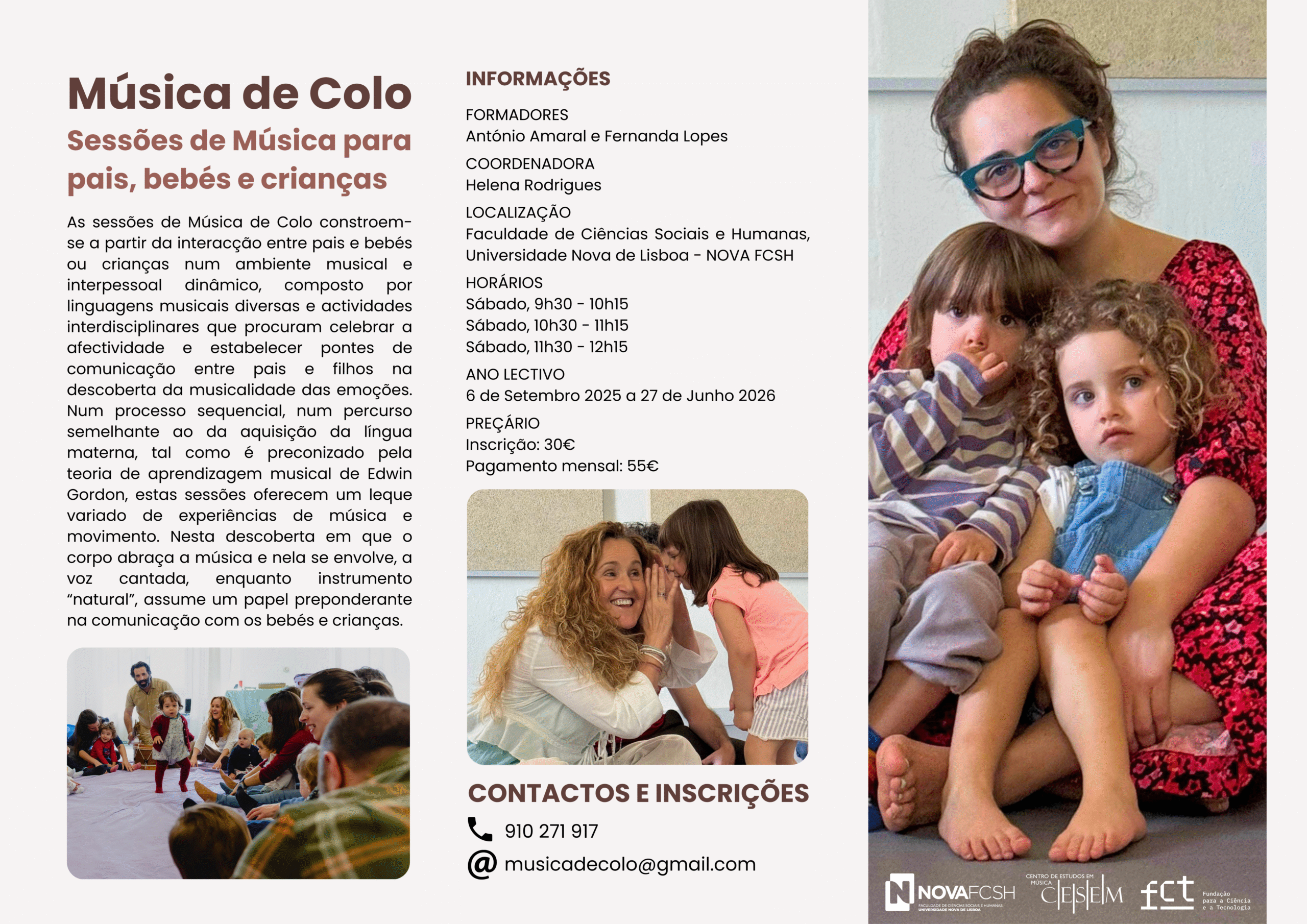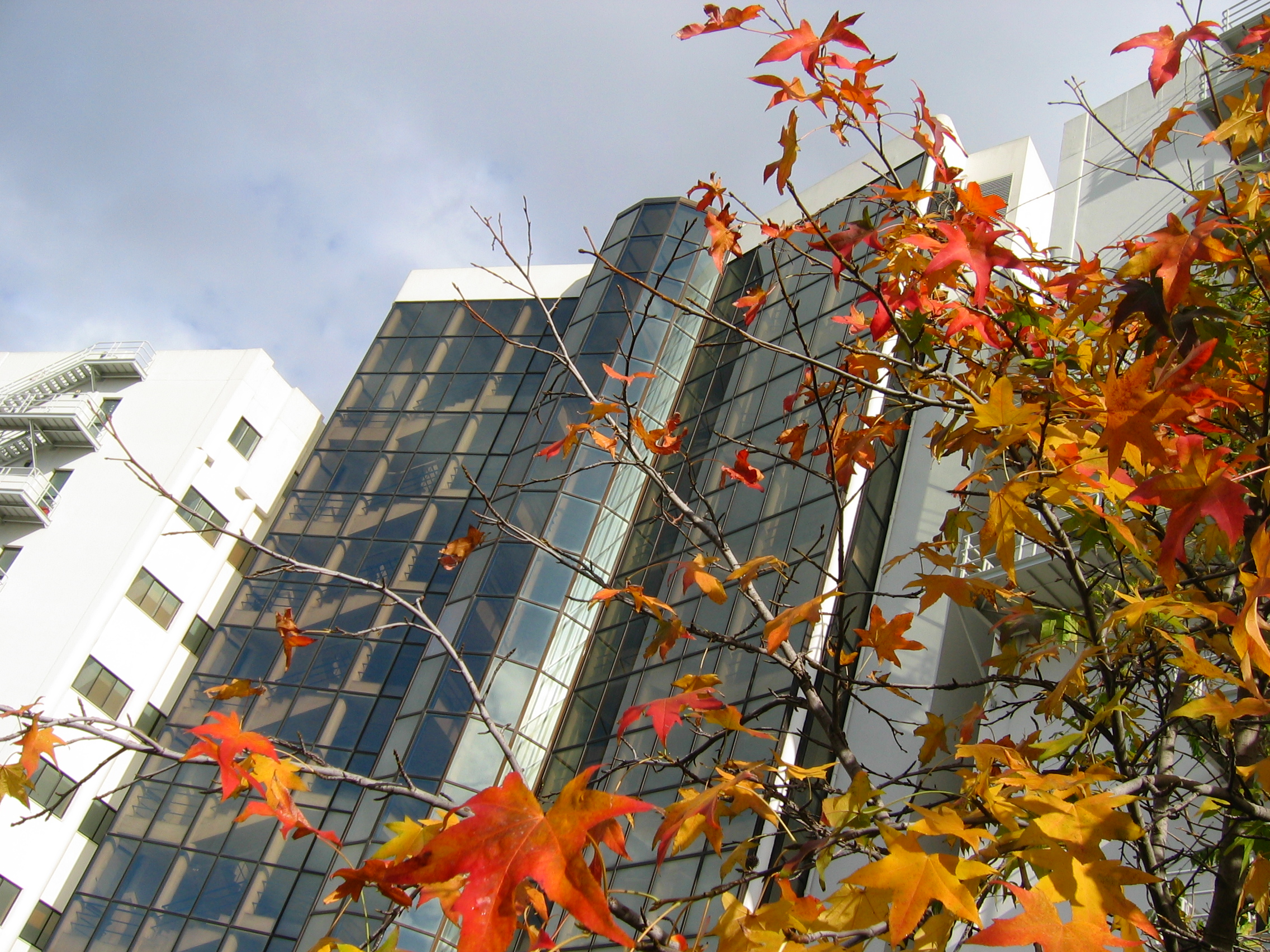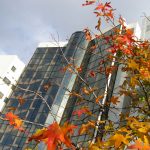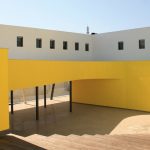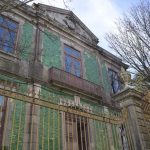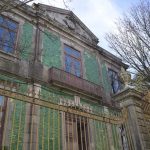Many of CESEM’s researchers teach as permanent professors at the universities and polytechnic institutes where the Centre is based or as invited lecturers at many other institutions.
Some of CESEM’s most qualified researchers feed high-level training courses at NOVA FCSH and the U. Évora, such as the PhD in Musical Sciences and the PhD in Music and Musicology. This list also includes the Master’s programmes in Musicology and Musical Arts (NOVA FCSH), in Music (UÉvora), Music Education and Music Teaching (NOVA FCSH, UÉvora, ESML, ESMAE), and Arts and Sound Technologies (ESMAE).
CESEM researchers also offer optional course units in Bachelor, Master, and Doctoral programs, and courses in Summer Schools and between semesters.
Música de colo
The programme started in 2009, when LAMCI was founded, this continuity programme has been structured at various levels: (i) for the development and systematic experimentation of musical guidance models for children; (ii) for observation / training in context; and (iii) for reflection and questioning in a naturalistic research space.
This programme, led by two NOVA FCSH alumni (António Amaral and Fernanda Lopes), has been characterised by its regularity over the last ten years, offering sessions aimed at groups of babies and pre-school children and their carers. Built on the interaction between all those who take part and based on Edwin Gordon’s Music Learning Theory (with different sessions for each level), these sessions offer a wide range of music and movement experiences, building bridges of communication between children and their carers in an attractive and dynamic pedagogical environment, seeking to celebrate affection.
The sessions occur every Saturday in the LAMCI space, are held continuously between September and June of each school year, and have had increasing participants since they were founded, indicating strong adherence and satisfaction with this type of intervention.
This activity has also allowed many master’s students to observe musical sessions that serve as a model for intervention, thus providing a source of training and inspiration.
Música de Colo has also been attended by other national and international guests from the areas of music, psychology, motor skills, child psychiatry, the visual arts, theatre, etc. This has allowed for deeper reflection on musical pedagogy issues and broadening the educational and research perspectives of the guests themselves.
